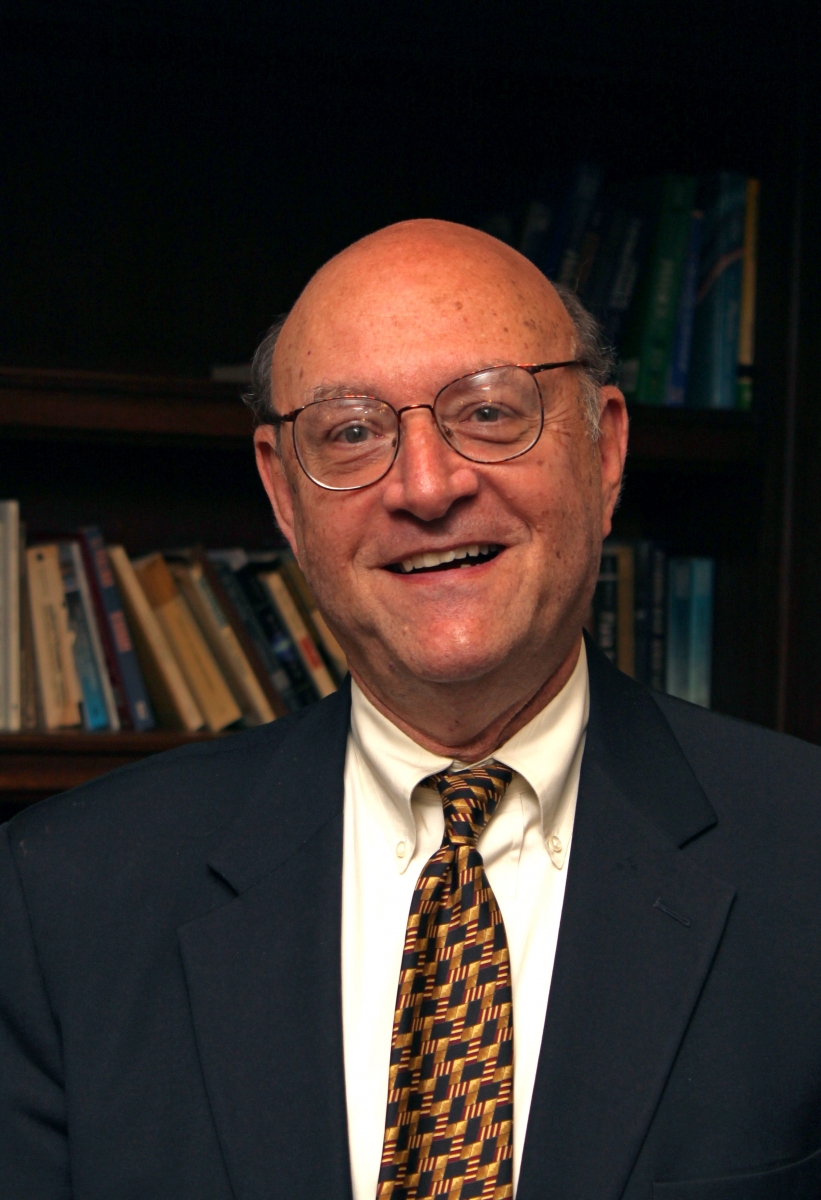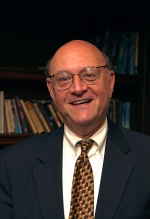Pitt’s University Honors College Dean to Step Down
High resolution image(s) available >
PITTSBURGH—Edward M. Stricker, dean of the University of Pittsburgh’s University Honors College since the summer of 2011, has announced his intention to step down from this leadership role and return to the faculty of the Department of Neuroscience in the fall of 2017.
“The University Honors College embodies the ideals of research and scholarship as well as that of excellence inside and outside the  classroom, library, and laboratory. It has been a great privilege for me to be a part of this remarkable organization,” said Stricker. “I look forward to returning to the Department of Neuroscience, where I will continue to teach and generally help students reach their fullest potential and thereby advance the mission of the University of Pittsburgh.”
classroom, library, and laboratory. It has been a great privilege for me to be a part of this remarkable organization,” said Stricker. “I look forward to returning to the Department of Neuroscience, where I will continue to teach and generally help students reach their fullest potential and thereby advance the mission of the University of Pittsburgh.”
“It has been my pleasure to work with Dean Stricker, both in his role as dean and in his participation in the activities of our Council of Deans. His impact on the growth of the Honors College and the entire University through his role on the Council of Deans cannot be overstated. I am pleased that he will continue his academic career here at Pitt for the foreseeable future,” said Patricia E. Beeson, provost and senior vice chancellor at the University of Pittsburgh.
On July 1, 2011, Stricker officially succeeded G. Alec Stewart—the University Honors College’s dean from its inception in 1986 until his death in 2010—and Steven Husted, a Pitt professor of economics who served as interim dean following Stewart’s passing. As dean of the University Honors College, Stricker has worked to increase the breadth of the college and the student experience. Among his notable accomplishments are:
* Extending the Honors College’s reach into the health sciences by instituting Health Professions Advising, which annually assists more than 1,500 students.
* Inaugurating the Honors College Faculty Fellows, an honorific designation given to Pitt faculty members who have made, and continue to make, substantial contributions to the Honors College.
* Supporting Pitt students in their pursuit of distinguished scholarships and fellowships. Since 2011, Pitt students have won a Rhodes, a Harry S. Truman, a Winston Churchill, four Morris K. and Stewart L. Udall, 14 Barry M. Goldwater, and 18 David L. Boren Scholarships as well as more than 55 Fulbright U.S. Student Program Grants.
* Forming the University Honors College Board of Visitors—composed of Pitt alumni with close ties to the Honors College—to provide insight and guidance to the college’s ongoing strategic planning process.
* Establishing Academic Community Engagement Advising to assist students in connecting their academic interests with opportunities to positively impact local communities.
* Expanding the Honors Housing Program so that collectively the three honors dorms now accommodate more than 700 undergraduates.
Stricker arrived at Pitt in 1971 as an associate professor of psychology and biological sciences and was elevated to full professor in 1976. In 1986, he was named a Distinguished University Professor of Neuroscience, a special Pitt faculty ranking that transcends accomplishments in a single discipline and recognizes eminence in several fields.
During his 45 years as a professor at Pitt, Stricker played an influential role in the development of the University’s nationally recognized neuroscience program. He served as the founding chair of the Department of Neuroscience from 1986 to 2002. Stricker also was the founding director of Pitt’s Conti Center for Neuroscience of Mental Disorders and was co-director of Pitt’s Center for Neuroscience.
In 2015, Stricker received the Distinguished Career Award from the Society for the Study of Ingestive Behavior. As a Pitt faculty member, he was recognized with the Bellet Teaching Excellence Award in 2001 and the Chancellor’s Distinguished Teaching Award in 1992. He earned Bachelor of Science and Master of Science degrees in chemistry from the University of Chicago in 1960 and 1961, respectively. Stricker earned a PhD degree in psychology at Yale University in 1965.
A search committee will be formed this fall to identify Stricker’s successor as dean of the University Honors College.
Established in 1986, the University Honors College seeks to meet the special academic and co-curricular needs of Pitt’s most capable and motivated undergraduate students. Building upon the achievements of the University Honors Program—begun in 1978—the Honors College provides increased incentives, opportunity, and recognition for high academic attainment by students.
###
6/16/16/amm/klf/jm/sr
Media Resources
Schools of the Health Sciences Media Relations
For more information about Pitt's schools of dental medicine, health and rehabilitation sciences, medicine, nursing, pharmacy, and public health, click here >
To locate stories from health science schools prior to 2013, visit the UPMC news archives »
Urgent Question?
University of Pittsburgh news reps are available to answer urgent media inquiries. Outside of regular business hours (Mon-Fri, 8:30 a.m.-5 p.m.), please email us at media@pitt.edu.
News reps for University of Pittsburgh Health Sciences schools can be reached outside of regular business hours through the paging operator at 1+412-647-2345.



